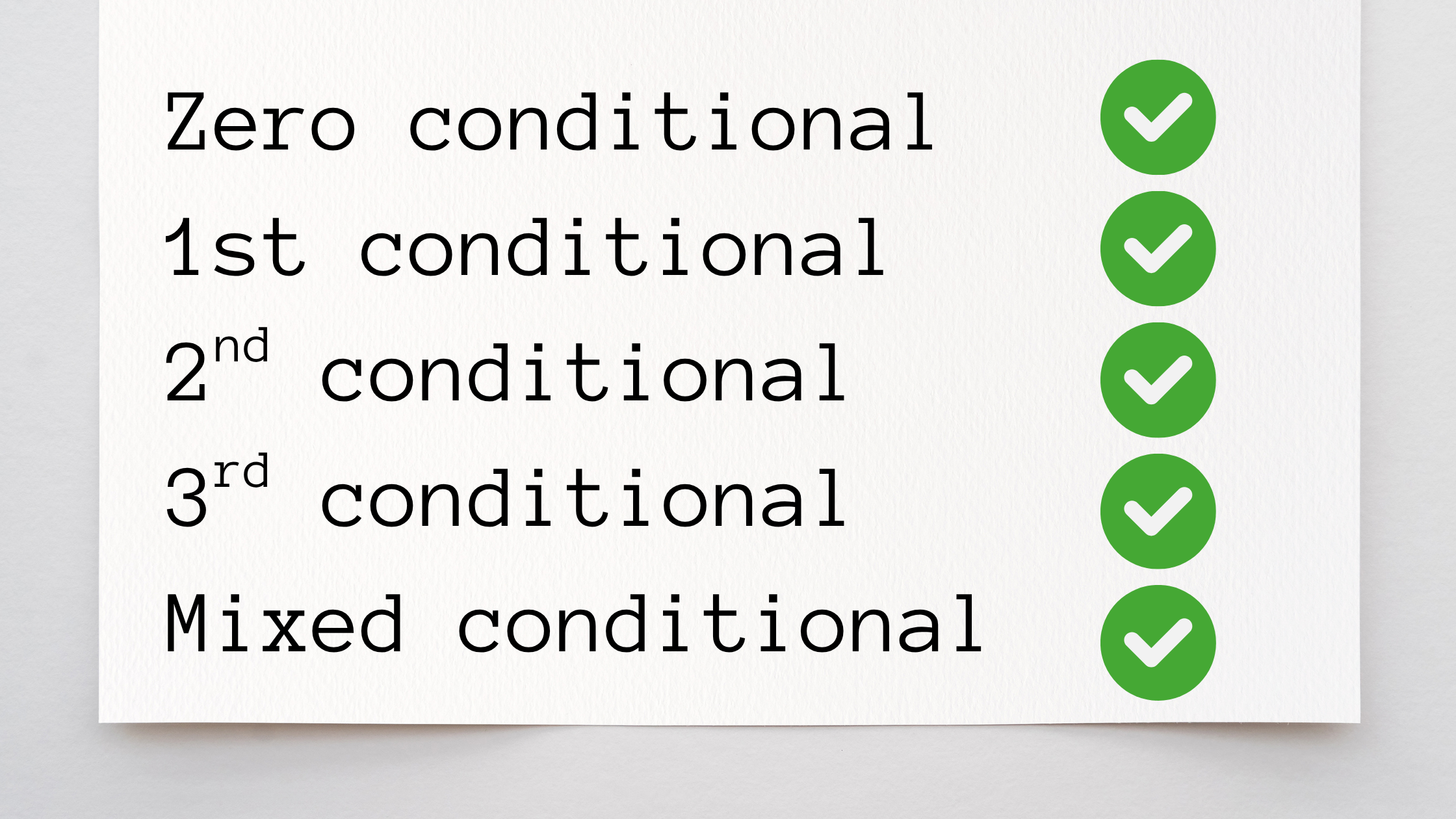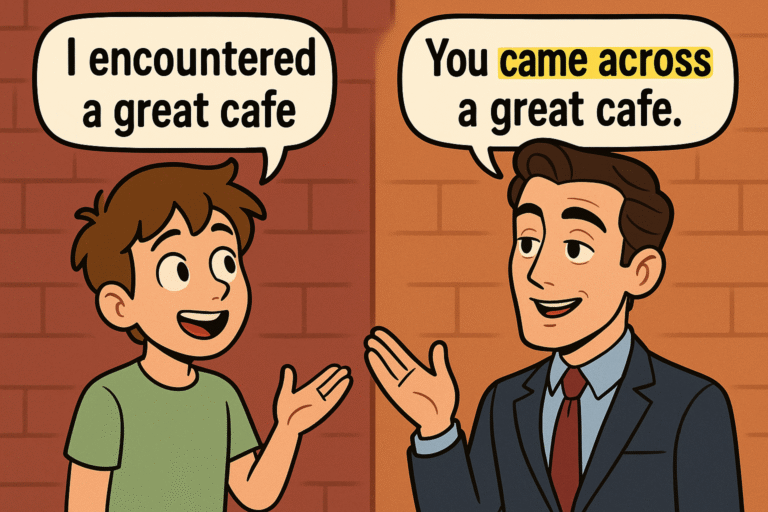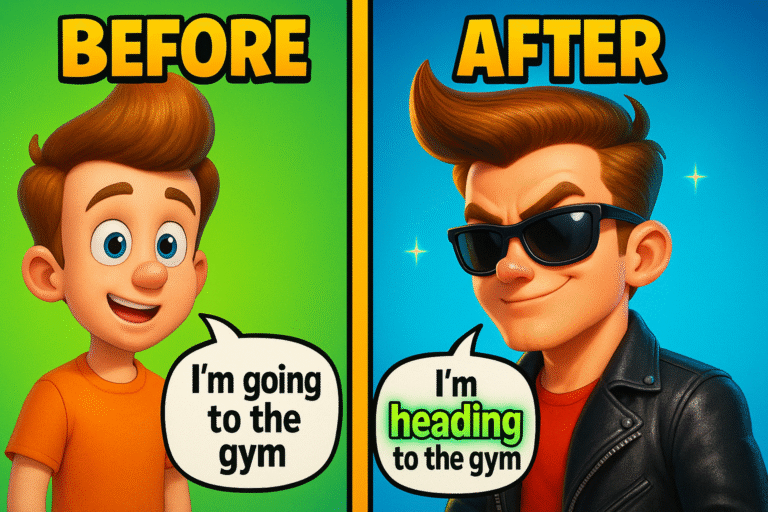Lesson Goal:
To accurately use a range of conditional sentences (zero, first, second, third, and mixed) in IELTS Writing Task 2 essays for complex grammar range and accuracy.
📚 1. What is the Zero Conditional?
Structure:If + present simple, present simple
Usage:
We use the zero conditional to talk about:
- Scientific or general truths
- Habits or rules
- Consequences that always happen
🔹 Examples:
- If you heat water to 100°C, it boils.
- If students are well-supported, they perform better academically.
- If people eat too much fast food, their health suffers.
🖋️ 2. IELTS-Specific Uses
In IELTS Writing Task 2, zero conditionals are helpful when:
- Presenting facts or widely accepted knowledge
- Supporting cause-effect arguments
- Showing consistent outcomes of a policy or behavior
🔹 IELTS Topic Examples:
| Topic | Zero Conditional Sentence Example |
|---|---|
| Environment | If deforestation increases, biodiversity decreases. |
| Education | If teachers give regular feedback, students improve their writing. |
| Health | If people do not exercise regularly, they face health issues. |
| Crime & Society | If poverty rises, crime rates tend to increase. |
🧠 3. Key Grammar Notes
- Both clauses are in the present simple.
- You can reverse the order:
People get healthier if they avoid processed food. - “When” can often replace “if” for zero conditionals:
When students work in groups, they often learn better.
✏️ 4. Practice Exercises
✅ Exercise 1: Complete the Sentences
Complete each sentence using a zero conditional structure.
- If people (not sleep) enough, they __________ tired.
- If the government (raise) taxes, citizens __________ more.
- If students (submit) essays late, they __________ penalties.
- If fast food (be) cheap and available, people __________ it more often.
- If cities (have) poor public transport, traffic __________ worse.
Answers
1. don’t sleep / feel
2.raise / pay
3. submit / receive
4. is / eat
5. have / gets
✅ Exercise 2: Rewrite as Zero Conditional
Transform the statements into zero conditional sentences.
- Smoking causes lung problems.
→ _If __________, _________. - Exercise reduces stress.
→ _If __________, _________. - Students fail when they don’t prepare.
→ _If __________, _________. - Pollution rises when factories increase output.
→ _If __________, _________.
Possible Answers
1.If people smoke, they develop lung problems.
2. If people exercise, their stress reduces.
3. If students don’t prepare, they fail.
4. If factories increase output, pollution rises.
✅ Exercise 3: Topic Practice
Write two zero conditional sentences for each topic below:
A. Environment
1.
2.
B. Education
1.
2.
C. Health & Lifestyle
1.
2.
Possible Answers
A. Environment
1. If factories release untreated waste, the surrounding water becomes polluted.
2. If people use public transport instead of cars, air pollution decreases.B. Education
1. If students receive regular feedback, their academic performance improves.
2. If schools provide access to technology, students learn more efficiently.C. Health & Lifestyle
1. If people eat junk food regularly, they gain weight and face health issues.
2. If individuals exercise every day, their mental and physical health improves.
📚 1. What is the First Conditional?
Structure:
If + present simple, will + base verb
Usage:
Use it when talking about:
- Real and possible situations in the future
- The consequences of actions or policies
- Proposals and their likely impact
🔹 Examples:
- If governments invest in public transport, traffic congestion will decrease.
- If students study abroad, they will gain global exposure.
- If people continue to consume unhealthy food, obesity rates will rise.
🖋️ 2. IELTS-Specific Uses
First conditionals are very common in:
- Predicting future effects of a policy
- Supporting your own opinion
- Arguing in favor of a course of action
🔹 IELTS Topic Examples:
| Topic | First Conditional Sentence Example |
|---|---|
| Environment | If countries reduce carbon emissions, global warming will slow down. |
| Education | If schools introduce coding classes, students will be better prepared for future jobs. |
| Technology | If AI continues to develop, many jobs will become automated. |
| Health | If people avoid processed food, their long-term health will improve. |
🧠 3. Key Grammar Notes
- The “if” clause uses present simple, not future tense.
✅ If the government bans plastic…
❌ If the government will ban plastic… - You can reverse the clause order:
- Air quality will improve if the government enforces stricter regulations.
- You can use modals for variation:
- If prices rise, people may stop buying cars.
- If schools act now, they might prevent a future crisis.
✏️ 4. Practice Exercises
✅ Exercise 1: Complete the Sentences
Use the correct form of the verbs to complete these first conditional sentences:
- If the government (invest) in renewable energy, pollution __________ (decrease).
- If parents (encourage) reading, children __________ (develop) better language skills.
- If people (not take) action on climate change, temperatures __________ (keep) rising.
- Students (perform) better if schools (reduce) class sizes.
- If companies (offer) flexible working, employee satisfaction __________ (increase).
Answers
1. If the government invests in renewable energy, pollution will decrease.
2. If parents encourages reading, children will develop better language skills.
3. If people do not take action on climate change, temperatures will keep rising.
4. Students will perform better if schools reduce class sizes.
5. If companies offer flexible working, employee satisfaction will increase.
✅ Exercise 2: Rewrite the Sentences Using First Conditional
Turn these ideas into first conditional sentences:
- The government introduces stricter laws. The crime rate falls.
→ _If the government __________, the crime rate _________. - Students do not attend lectures. They fail the exam.
→ _If students __________, they _________. - The cost of healthcare continues to rise. Fewer people can afford it.
→ _If the cost of healthcare __________, fewer people _________.
Answers
1. The government introduces stricter laws. The crime rate falls.
→ _If the government introduces stricter laws, the crime rate will fall.2. Students do not attend lectures. They fail the exam.
→ _If students do not attend lectures, they will fail the exam.3. The cost of healthcare continues to rise. Fewer people can afford it.
→ _If the cost of healthcare continues to rise, fewer people will be able to afford it.
✅ Exercise 3: Topic-Based Writing
Write two first conditional sentences for each topic:
A. Environment
1.
2.
B. Education
1.
2.
C. Society & Law
1.
2.
Answers
A. Environment
1. If governments invest in renewable energy, carbon emissions will decrease significantly.
2. If people reduce their use of plastic, there will be less pollution in oceans and riversB. Education
1. If schools introduce more practical subjects, students will be better prepared for real-life challenges.
2. If teachers use interactive methods, students will stay more engaged in lessons.C. Society & Law
1. If stricter penalties are imposed for serious crimes, crime rates will likely decline.
2. If the government improves access to social services, fewer people will turn to illegal activities.
📚 1. What is the Second Conditional?
Structure:
If + past simple, would + base verb
Usage:
Use it when:
- Describing imagined or ideal solutions
- Giving advice or recommendations
- Discussing unreal or unlikely present or future scenarios
🔹 Examples:
- If the government provided more funding for public transport, fewer people would use cars.
- If schools focused more on creativity, students would become better problem solvers.
- If more people volunteered, social issues would be addressed more quickly.
🔎 Notice: This is not about the real future (that would be first conditional) but an imagined situation or suggestion.
🖋️ 2. IELTS-Specific Uses
Use the second conditional to:
- Suggest policies that don’t currently exist
- Present ideal reforms or changes
- Hypothesize about unrealistic or less likely scenarios
| Topic | Example (Second Conditional) |
|---|---|
| Environment | If countries planted more trees, air quality would improve. |
| Education | If teachers used more modern methods, students would enjoy learning more. |
| Society | If housing were more affordable, fewer people would be homeless. |
🧠 3. Key Grammar Tips
- The “if” clause uses past simple, even though the meaning is about an unreal present/future.
- The result clause uses would + base verb
- For variety, use modals: might, could, should
✏️ 4. Practice Exercises
✅ Exercise 1: Complete the Sentences
Use the second conditional structure to complete:
- If the government (ban) single-use plastics, pollution __________ (reduce).
- If schools (focus) more on mental health, students __________ (benefit).
- People (be) healthier if they (exercise) regularly.
- If public transport (be) free, more people __________ (use) it.
- If I (have) more time, I __________ (volunteer) in my community.
Answers
1.If the government banned single-use plastics, pollution would reduced.
2. If schools focused more on mental health, students would benefit.
3. People would be healthier if they exercised regularly.
4. If public transport were free, more people would be used it.
5. If I had more time, I would volunteer in my community.
✅ Exercise 2: Rewrite Using Second Conditional
Turn these into second conditional sentences:
- The government doesn’t build enough affordable housing. People struggle with rent.
→ If the government __________, people _________. - Cities are not designed for cyclists. Fewer people choose to bike.
→ If cities __________, more people _________.
Answers
1. The government doesn’t build enough affordable housing. People struggle with rent.
→ If the government didn’t build enough affordable housing, people would struggle with rent.
2. Cities are not designed for cyclists. Fewer people choose to bike.
→ If cities were not designed for cyclists, more people would choose to bike.
✅ Exercise 3: Topic-Based Practice
Write two second conditional sentences for each topic:
A. Environment
1.
2.
B. Education
1.
2.
C. Society & Lifestyle
1.
2.
Answers
A. Environment
1. If governments invested more in renewable energy, we would see a significant drop in fossil fuel consumption.
2. If people used public transport more often, cities would experience less air pollution and traffic congestion.B. Education
1. If schools provided more vocational training, students would be better prepared for the job market.
2. If teachers were given more professional development opportunities, they would be able to use more effective teaching strategies.C. Society & Lifestyle
1. If housing were more affordable, fewer families would struggle to meet basic living standards.
2. If people worked fewer hours, they would have more time to spend with their families and improve their well-being.
📚 1. What is the Third Conditional?
Structure:
If + had + past participle, would have + past participle
🔹 Examples:
- If the government had taken action earlier, the crisis would have been avoided.
- If schools had invested in online learning, they would have managed the pandemic more effectively.
- If people had followed health guidelines, fewer infections would have occurred.
🔎 Use this conditional to show what could have happened differently in the past.
🧠 2. When to Use It in IELTS
Use the third conditional to:
- Reflect on past mistakes
- Suggest better past decisions
- Analyze what went wrong or what could have gone right
It is particularly effective in:
- Problem-solution essays (when analyzing failed solutions)
- Discussion essays (when evaluating history or outcomes)
- Agree/disagree essays (when supporting or rejecting past choices)
🖋️ 3. Key Grammar Notes
- The “if” clause:
had + past participle
✅ If the government had reacted… - The main clause:
would have + past participle
✅ …the problem would have been prevented. - You can use modals for nuance:
- might have, could have, should have
✏️ 4. Practice Exercises
✅ Exercise 1: Complete the Sentences
- If world leaders (act) sooner, climate change __________ (not become) this severe.
- Students (learn) more effectively if schools (adopt) online platforms earlier.
- If more money (be) invested in healthcare, the outbreak __________ (be) better managed.
- Many species (survive) if governments (protect) their habitats.
- If I (know) about this issue before, I __________ (choose) a different topic.
Answers
1.If world leaders had acted sooner, climate change would not have become this severe.
2. Students would have learned more effectively if schools had adopted online platforms earlier.
3. If more money had been invested in healthcare, the outbreak would have been better managed.
4. Many species would have survived if governments had been protected their habitats.
5. If I had known about this issue before, I would have been chosen a different topic.
✅ Exercise 2: Rewrite the Sentences Using Third Conditional
- The government didn’t provide support. Many small businesses closed.
→ _If the government __________, many small businesses _________. - The school didn’t update its curriculum. Students weren’t well prepared for modern jobs.
→ _If the school __________, students _________.
Answers
1.The government didn’t provide support. Many small businesses closed.
→ _If the government had provided support, many small businesses wouldn’t have closed.2. The school didn’t update its curriculum. Students weren’t well prepared for modern jobs.
→ _If the school had updated its curriculum, students would have been well prepared for modern jobs.
✅ Exercise 3: Create Your Own
Write two third conditional sentences for each topic below.
A. Environment
1.
2.
B. Education
1.
2.
C. Society & History
1.
2.
Answers
A. Environment
1. If world leaders had taken climate change seriously decades ago, global temperatures would have risen much more slowly.
2. If governments had banned single-use plastics earlier, we would have seen far less ocean pollution today.B. Education
1. If schools had adapted their teaching methods to include more digital tools earlier, students would have been better prepared for remote learning.
2. If low-income families had received more educational support in the past, the achievement gap would have been reduced.C. Society & History
1. If governments had implemented effective housing policies earlier, many urban populations would not have faced homelessness.
2. If public health officials had acted faster at the start of the pandemic, fewer lives would have been lost.
🔄 1. What Are Mixed Conditionals?
Mixed conditionals combine two different types of conditionals in one sentence:
| Type | Meaning | If-clause | Result-clause | Example |
|---|---|---|---|---|
| 3 → 2 | Past cause, present result | If + had + past participle | would + base verb (now) | If the government had acted sooner, we would be in a better position today. |
| 2 → 3 | Present cause, past result | If + past simple (unreal present) | would have + past participle | If the education system were stronger, more students would have succeeded last year. |
📘 2. Why Use These in IELTS?
Use 3→2 to explain how past actions affect the present
Use 2→3 to explain how current problems explain past failures
Both allow you to:
- Reflect on causes and consequences
- Show critical thinking and advanced control of grammar
- Add depth to policy or social critiques
✏️ 3. Sentence Structure Cheat Sheet
🟡 3 → 2: Past → Present
If + had + past participle, would + base verb
- If leaders had acted faster, we would be better prepared today.
🔵 2 → 3: Present → Past
If + past simple, would have + past participle
- If education were more inclusive, fewer students would have dropped out last year.
✅ 4. Examples by IELTS Topic
🟢 A. Environment
🔁 3 → 2
- If governments had enforced strict environmental laws earlier, we wouldn’t be facing such high levels of pollution today.
- If the city had invested in flood defences, we would be much safer now during heavy rains.
🔁 2 → 3
- If urban planning were more sustainable, we wouldn’t have lost so much green space over the past decade.
- If environmental education were part of the curriculum, people would have made more eco-friendly choices last year.
🔵 B. Education
🔁 3 → 2
- If teachers had been trained in digital tools earlier, students would be more confident in online learning today.
- If the school system had focused on soft skills, graduates would be more employable now.
🔁 2 → 3
- If schools were better equipped, students wouldn’t have failed so many exams during the lockdown.
- If the curriculum were more practical, fewer students would have struggled with real-world tasks after graduating.
⚖️ C. Society & History
🔁 3 → 2
- If public health campaigns had been better coordinated, we wouldn’t be dealing with misinformation today.
- If housing reform had happened years ago, we wouldn’t be facing such a severe crisis now.
🔁 2 → 3
- If social services were more accessible, fewer families would have fallen into poverty last year.
- If the justice system were more transparent, there wouldn’t have been such public outrage during the trial.
✏️ Exercise Set 1: 3 → 2 (Past Cause → Present Result)
Structure:
If + had + past participle, would + base verb (now)
Instructions: Complete the sentences with the correct form of the verbs and appropriate ideas.
- If the government __________ (invest) in nuclear power earlier, the country __________ (rely) less on imported energy today.
- If schools __________ (introduce) financial literacy courses in the past, young adults __________ (manage) money better today.
- If transport authorities __________ (expand) rail networks a decade ago, commuters __________ (spend) less time in traffic now.
- If more funding __________ (go) into vocational training earlier, there __________ (be) more skilled tradespeople available today.
- If local councils __________ (maintain) infrastructure more consistently, cities __________ (be) in better condition now.
Answers
If the government had invested in nuclear power earlier, the country would rely less on imported energy today.
If schools had introduced financial literacy courses in the past, young adults would manage money better today.
If transport authorities had expanded rail networks a decade ago, commuters would spend less time in traffic now.
If more funding had gone into vocational training earlier, there would be more skilled tradespeople available today.
If local councils had maintained infrastructure more consistently, cities would be in better condition now.
✏️ Exercise Set 2: 2 → 3 (Present Cause → Past Result)
Structure:
If + past simple (unreal present), would have + past participle (past result)
Instructions: Fill in the blanks with logical ideas across different time frames.
- If university fees __________ (be) lower today, more students __________ (continue) their studies after high school.
- If city planning __________ (be) more efficient now, we __________ (avoid) congestion problems in the past few years.
- If the job market __________ (offer) more entry-level roles, graduates __________ (struggle) less to find work last year.
- If housing supply __________ (meet) current demand, property prices __________ (rise) less sharply in recent years.
- If consumer demand __________ (be) more stable today, some businesses __________ (avoid) bankruptcy last year.
Answers
1. If university fees were lower today, more students would have continued their studies after high school.
2. If city planning were more efficient now, we would have avoided congestion problems in the past few years.
3. If the job market offered more entry-level roles, graduates would have struggled less to find work last year.
4. If housing supply met current demand, property prices would have risen less sharply in recent years.
5. If consumer demand were more stable today, some businesses would have avoided bankruptcy last year.
🧪 5. Practice: Create Your Own
Fill in the blanks with either 3→2 or 2→3:
A. Environment
- If more people ________ environmentally conscious today, carbon emissions ________ significantly last year. (2→3)
B. Education
- If the ministry of education ________ reforms earlier, students ________ more digital skills now. (3→2)
C. Society
- If healthcare access ________ more equal today, mortality rates ________ lower during the pandemic. (2→3)
Answers
A. Environment
If more people were environmentally conscious today, carbon emissions would have been reduced significantly last year. (2→3)B. Education
If the ministry of education had made reforms earlier, students would have more digital skills now. (3→2)C. Society
If healthcare access were more equal today, mortality rates would have been lower during the pandemic. (2→3)
✏️ All-Conditionals Integrated Exercise
🎯 Focus: Grammar + Logical Cause-Effect Reasoning
🧠 Level: Upper-Intermediate to Advanced (Band 7+)
🔁 Instructions:
Complete each sentence by choosing the correct verb tense and completing the idea logically. Identify the type of conditional being used (zero, first, second, third, or mixed).
🟢 A. Education
- If students _________ (not review) vocabulary regularly, they often forget new words within a few days.
👉 Conditional Type: _______ - If the government _________ (increase) teacher salaries next year, more qualified professionals _________ (enter) the profession.
👉 Conditional Type: _______ - If more funding _________ (go) to rural schools in the 1990s, the quality of education _________ (be) better today.
👉 Conditional Type: _______ - If the curriculum _________ (focus) more on critical thinking today, students _________ (perform) better in problem-solving tasks last year.
👉 Conditional Type: _______
Answers
1.If students do not review vocabulary regularly, they often forget new words within a few days.
👉 Conditional Type: Zero
2. If the government increase teacher salaries next year, more qualified professionals will enter the profession.
👉 Conditional Type: First
3. If more funding had gone to rural schools in the 1990s, the quality of education would be better today.
👉 Conditional Type: Mixed (3>2)
4. If the curriculum were focused more on critical thinking today, students would have performed better in problem-solving tasks last year.
👉 Conditional Type: Mixed (2>3)
🔵 B. Environment
- If people _________ (recycle) glass and plastic, it _________ (reduce) waste in landfills.
👉 Conditional Type: _______ - If international leaders _________ (sign) stricter agreements in the past, global emissions _________ (not rise) so dramatically.
👉 Conditional Type: _______ - If deforestation _________ (continue) at the current rate, we _________ (face) serious ecological consequences in the next decade.
👉 Conditional Type: _______ - If public awareness campaigns _________ (be) more effective today, people _________ (change) their habits sooner.
👉 Conditional Type: _______
Answers
5. If people recycle glass and plastic, it reduces waste in landfills.
👉 Conditional Type: Zero
6. If international leaders had signed stricter agreements in the past, global emissions would not have risen so dramatically.
👉 Conditional Type: Third
7. If deforestation continues at the current rate, we will face serious ecological consequences in the next decade.
👉 Conditional Type: First
8. If public awareness campaigns were more effective today, people would have changed their habits sooner.
👉 Conditional Type: Mixed (2>3)
⚖️ C. Society & Technology
- If artificial intelligence _________ (develop) more rapidly, it _________ (replace) many traditional jobs in the coming years.
👉 Conditional Type: _______ - If governments _________ (not ignore) early warnings about online privacy risks, personal data _________ (be) more secure today.
👉 Conditional Type: _______ - If more young people _________ (volunteer) in their communities, many past local issues _________ (resolve) more quickly.
👉 Conditional Type: _______ - If urban infrastructure _________ (be) more efficient today, citizens _________ (not experience) so many delays last year.
👉 Conditional Type: _______
Answers
13. If artificial intelligence develops more rapidly, it will replace many traditional jobs in the coming years.
👉 Conditional Type: First
14. If governments had not ignored early warnings about online privacy risks, personal data would be more secure today.
👉 Conditional Type: Mixed (3>2)
15. If more young people volunteered in their communities, many past local issues would have been resolved more quickly.
👉 Conditional Type: Mixed (2>3)
16. If urban infrastructure were more efficient today, citizens would not have experienced so many delays last year.
👉 Conditional Type: Mixed (2>3)







